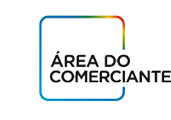
The European Union (EU) Ecolabel, referred in Portugal as “Rótulo Ecológico da União Europeia” (REUE), is a voluntary labelling system that is part of the EU’s policy on sustainable production and consumption and is managed by the European Commission and the competent bodies of the Member States of the European Union.
In the same year as the United Nations Conference on Environment and Development, held in Rio de Janeiro in 1992, Council Regulation (EC) No 880/92 of March 23 came into force, on a community ecolabel award scheme.
Currently, the legislative framework establishing the voluntary EU Ecolabel award scheme and its implementing rules, which aim to promote products and services with a high environmental performance, is defined by Regulation (EC) No 66/2010 of the European Parliament and of the Council of November 25th, 2009.
This regulation applies to goods and services (hereinafter referred to as products) supplied for distribution, consumption or use on the Community market, whether in return for payment or free of charge.
Products that have been granted licences to use the EU Ecolabel are easily identified by their logo (the flower), giving consumers the assurance that they are making the best choice in terms of environmental impact and product quality.
In this way, the EU Ecolabel also acts as a system to boost the competitiveness of companies in terms of their sustainability, innovation, social responsibility and technological development in a market that is increasingly aware of environmental issues.

Contact us through the following channels:
Avenida Visconde Valmor, n.º 72, 1069-041 Lisboa, Portugal
To the Corporate Sustainability Services Department/Direção de Serviços de Sustentabilidade Empresarial
(+351) 217 919 209
For more information check the index below:
Knowing EU Ecolabel
Obtaining EU Ecolabel
EU Ecolabel in Portugal













